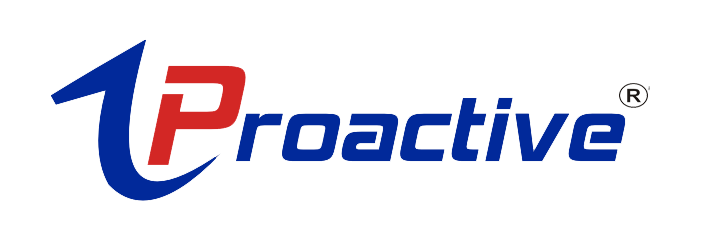Enhancing Political Campaigns: Social Media Marketing Strategies
- April 20, 2024
- Social Media Marketing
In the contemporary political arena, the impact of social media marketing on election campaigns is unprecedented. Political parties and candidates who leverage social media effectively can engage with voters on a more personal level, respond to public concerns in real-time, and mobilize supporters with greater efficiency.
Proactive Digital, with over 15 years of experience in SMS, voice, and digital marketing services in India, understands the transformative potential of social media marketing in the political context. This guide explores how social media can be strategically used throughout the different stages of an election campaign.
How Social Media Plays a Crucial Role in Political Campaigns
Social media platforms offer a dynamic environment where social media marketing political campaigns can conduct sophisticated marketing strategies that cater to specific demographic groups.
The interactive nature of these platforms allows for direct communication between candidates and voters, facilitating an ongoing dialogue that can significantly influence public opinion and voter behavior.
Stages of an Election Campaign and Social Media Integration
- Pre-campaign Phase: This stage involves building awareness and a positive image of the political candidate or party. Social media marketing can be used to highlight the candidate’s background, achievements, and key messages. A consistent posting schedule helps build a following and establish a campaign’s digital presence.
- Campaign Launch: Announcements of candidature and key policy outlines are crucial at this stage. Social media marketing platforms enable immediate and widespread dissemination of this information, creating buzz and anticipation.
- Mobilization: As the campaign progresses, the focus shifts to mobilizing supporters and encouraging voter registration. Platforms like Facebook and Twitter are excellent for organizing events, while Instagram and Snapchat can generate excitement through visually engaging social media marketing content.
- Get-Out-The-Vote (GOTV): In the final days before voting, social media campaigns can remind and encourage people to vote. Real-time updates and interactive tools can help track poll station traffic and wait times, potentially increasing voter turnout.
Advanced Targeting Techniques in Social Media Marketing
Effective social media marketing requires understanding and implementing advanced targeting techniques. Platforms like Facebook and Instagram offer tools that allow campaigns to deliver content to specific demographic groups based on age, location, and interests.
For instance, a campaign might target young voters with messages about educational policies or older demographics with healthcare initiatives.
Special Guidelines for Political Social Media Marketing in India
Do’s:
- Ensure Transparency: Always disclose the entity behind political advertisements and campaigns.
- Respect Privacy: Adhere to privacy laws and guidelines, especially concerning data collection and storage.
- Focus on Local Issues: Tailor messages to address local concerns and regional developments, which resonate more with the local populace.
Don’ts:
- Avoid Misinformation: Refrain from spreading unverified facts or engaging in smear campaigns.
- Steer Clear of Hate Speech: It’s crucial to monitor content and comments to prevent any form of hate speech or divisive content.
- Ignore Negative Feedback: Engage constructively with criticism and use it to improve campaign strategies and communication.
Effective Communication and Marketing Strategies
To make the most of social media in political campaigns, it is important to:
- Use a Multi-Platform Strategy: Different platforms attract different audiences. A coordinated approach across various platforms increases overall campaign reach and impact.
- Engage Regularly and Authentically: Regular updates and authentic communication help build trust and a relatable image.
- Leverage Video Content: Videos have higher engagement rates. Live streaming events or Q&A sessions can particularly enhance engagement.
Conclusion
As the digital landscape continues to evolve, the strategic integration of social media in political campaigns has become crucial for success in elections.
In the dynamic and competitive arena of Indian politics, those who skillfully blend traditional tactics with innovative social media marketing strategies are likely to enjoy a distinct advantage, driving greater voter turnout and fostering deeper connections with the electorate as they head to the polls.
As India moves closer to the Lok Sabha elections, the role of social media marketing in shaping political landscapes is becoming more pronounced. By leveraging targeted content, engaging with the electorate, and following ethical practices, political campaigns can maximize their impact and foster a more informed and active voter base.
FAQ Section
Q1: What is the most effective social media platform for political campaigning in India?
A: While Facebook and Twitter are broadly effective, the choice of platform should depend on the target demographic. Instagram and WhatsApp are increasingly popular among younger voters.
Q2: How often should political campaigns post on social media?
A: It’s recommended to maintain a regular posting schedule without overwhelming followers. Typically, 1-2 posts per day on platforms like Facebook and Instagram are advisable during intense campaign phases.
Q3: How can social media influence voter behavior?
A: Social media can sway voter behavior by providing tailored social media marketing content that resonates with personal beliefs and regional issues, and by fostering a community feel that encourages electoral participation.
Q4: Are there legal considerations for using social media in political campaigns in India?
A: Yes, campaigns must comply with the legal guidelines set by the Election Commission of India regarding content and advertising during elections.
Q5: Can social media replace traditional campaign methods?
A: While social media is a powerful tool, it works best in conjunction with traditional methods like rallies and door-to-door campaigns, providing a holistic approach to social media marketing voter engagement.









